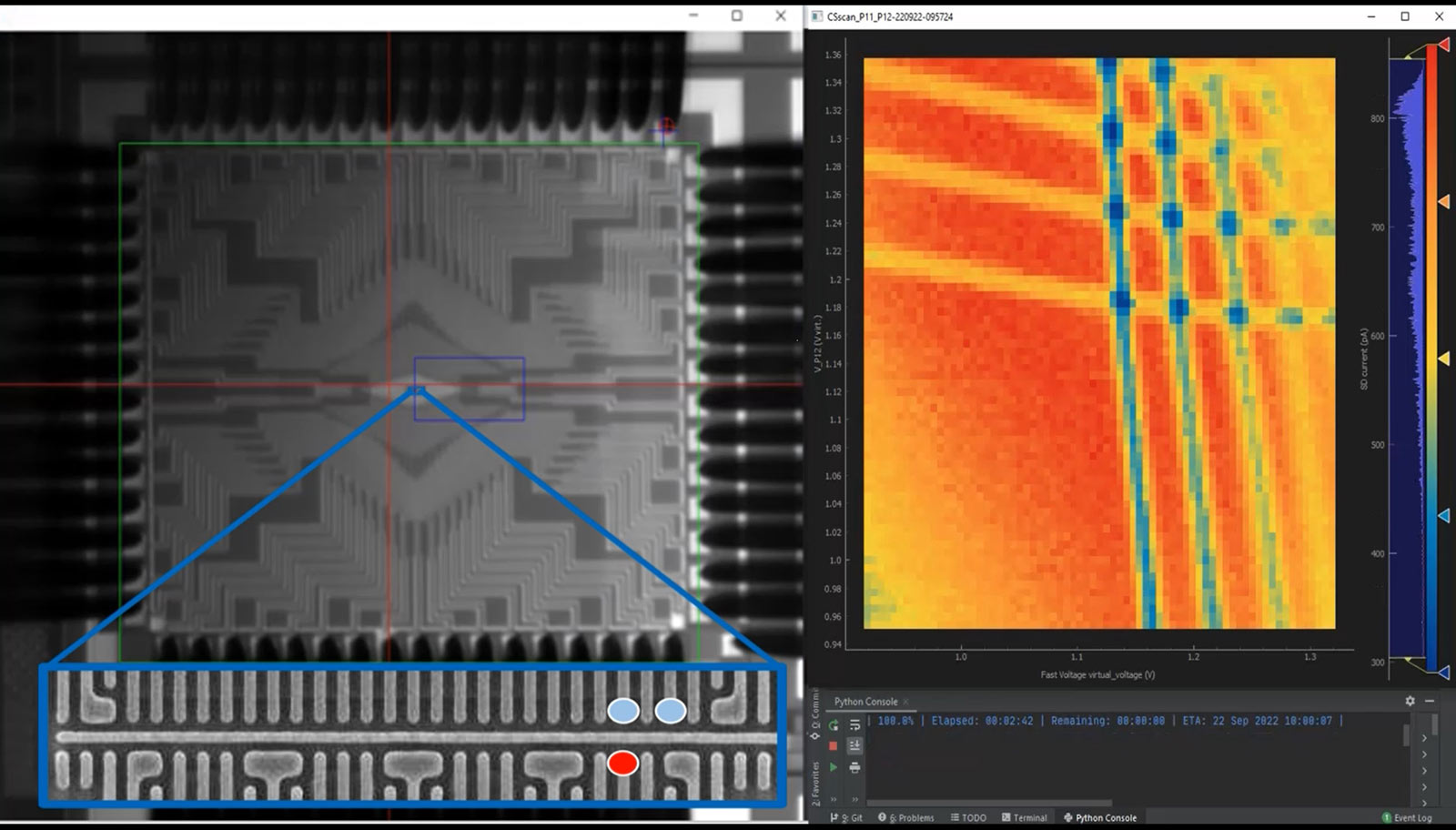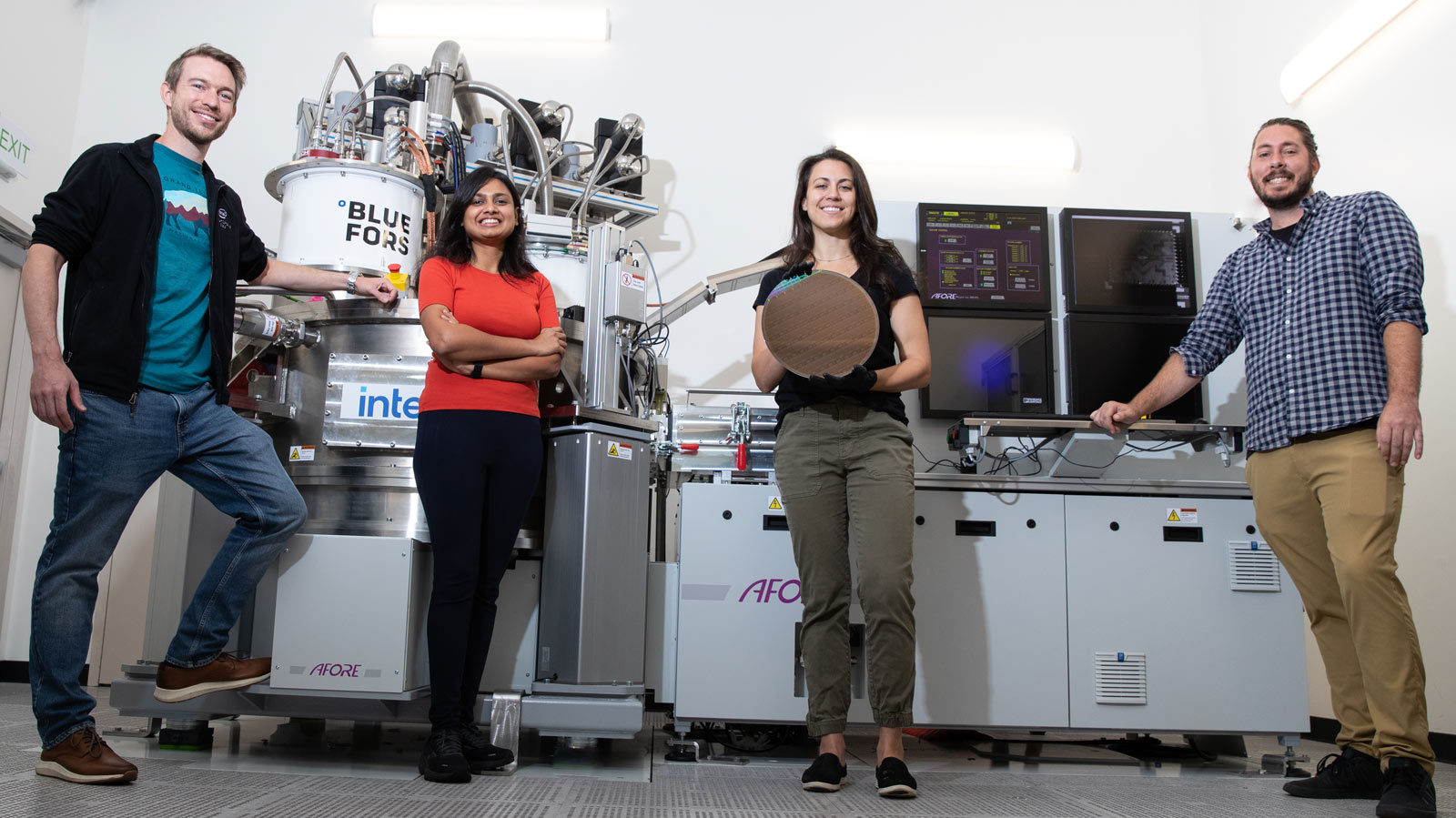Intel Claims Major Milestone in Quantum Chip Production
Exceptional yields with new silicon spin qubit devices
Intel has announced that it has sailed past a key milestone in the manufacturing of quantum computer processors. Intel Labs and Components Research organizations claim to have demonstrated the highest yield recorded for extreme ultraviolet (EUV) lithography production of silicon spin qubit devices. At Intel’s Gordon Moore Park transistor research and development facility in Hillsboro, Oregon, the team of researchers and engineers managed to create quantum chips with “remarkable uniformity,” and a 95% yield rate across the 300mm silicon wafer.
James Clarke, director of Quantum Hardware at Intel, boasted about his firm’s progress in manufacturing silicon spin qubits using readily available transistor manufacturing technology. This is key to Intel being able to leverage its semiconductor manufacturing prowess in this industry. The “high yield and uniformity achieved show that fabricating quantum chips on Intel’s established transistor process nodes,” and are a sure sign of success, according to Clarke. Moreover, it is hoped Intel’s well versed silicon chip refinement models will be applicable to advancing quantum computing.
The production and testing of a second gen silicon spin test chip sparked Intel’s latest blog post on its quantum chipmaking progress. The resulting manufactured quantum devices were tested using the Intel Cryoprober, which operates at extremely low temperatures (1.7 Kelvin or -271.45 degrees Celsius) to maintain the stability of the qubits and thus make them useful for computing purposes. Work is continuing on room-temperature quantum computers, another hurdle for the nascent industry.
Cryoprober confirmed that 95% of the qubit packing chips on the 300mm wafer were working as intended. This is particularly good news for Intel, as until now most quantum chip production efforts fabricated devices one at a time. Intel’s EUV process now appears to be capable of creating multiple quantum chips on a wafer, with the aforementioned great uniformity and yields.

With its second gen silicon spin test chip now thoroughly vetted, Intel will leverage statistical process control to make optimizations, extrapolating the progress it has already made to target the next-gen. It's hoped that eventually computer technology developers like Intel will be able to create quantum chips packing millions of qubits, and we are seeing the significant early stages of this growth process in 2022. Already, quantum computing is capable of some breathtaking calculations, and we're excited to see where things go in the coming years.
Get Tom's Hardware's best news and in-depth reviews, straight to your inbox.

Mark Tyson is a news editor at Tom's Hardware. He enjoys covering the full breadth of PC tech; from business and semiconductor design to products approaching the edge of reason.
-
spongiemaster Replythe team of researchers and engineers managed to create quantum chips with “remarkable uniformity,” and a 95% yield rate across the 300mm silicon wafer.
That's nice, but what most of us care about is how yields for Intel 4 are progressing. -
pclaughton Reply
Because clearly it's the same team working on that.spongiemaster said:That's nice, but what most of us care about is how yields for Intel 4 are progressing. -
Neilbob Interesting stuff, but it'd be a little more interesting if there was some indication of how large the chips are that result in this 95% yield rate. If they're 200mm2 then awesome. If they're 20mm2, not quite so much.Reply -
Geef All Intel needs to do to make money is print up a bunch of fake silicon circles with what looks like chips on them and sell them online. People would buy those like crazy. Have that hanging on the wall next to the PC!Reply -
spongiemaster Reply
Yes, but not relevant to my point.pclaughton said:Because clearly it's the same team working on that.
